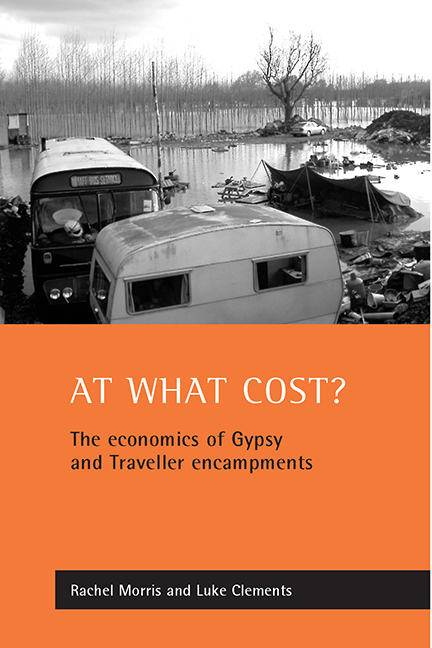Book contents
- Frontmatter
- Contents
- List of tables
- Preface
- Acknowledgements
- List of acronyms
- Dedication
- one Introduction
- two Past and present law
- three The costs to local authorities
- four The costs to others
- five Best Value
- six Rights, race relations and Best Value
- seven Conclusion: obstacles and opportunities
- References
- Appendices
- Index
- Also available from The Policy Press
three - The costs to local authorities
Published online by Cambridge University Press: 20 January 2022
- Frontmatter
- Contents
- List of tables
- Preface
- Acknowledgements
- List of acronyms
- Dedication
- one Introduction
- two Past and present law
- three The costs to local authorities
- four The costs to others
- five Best Value
- six Rights, race relations and Best Value
- seven Conclusion: obstacles and opportunities
- References
- Appendices
- Index
- Also available from The Policy Press
Summary
Methodology
The research study that underscores this account was carried out via a postal survey of county, unitary, metropolitan, London borough and district councils in the UK, including Scotland and Northern Ireland (a total of 464 local authorities). Six central government agencies were also approached for information: the Crown Estate Commissioners, the Duchy of Lancaster, English Nature, Forest Enterprise, the Ministry of Agriculture Fisheries and Food, and the Ministry of Defence.
Both qualitative and quantitative data were sought (see Appendix C) and, in addition, respondents were encouraged to comment briefly on any specific issues which they believed had been raised by the questionnaire. The survey was aimed at highlighting how local authority and other public policies may differ, and to outline the implications for ‘Best Value’ in the context of the coming into force of the 1999 Local Government Act on 1 April 2000 (see further in Chapter Five).
The survey sought to assess total public authority expenditure relating to Travelling People. Authorities were asked how much money and other resources they had expended in the period 1 September 1998 to 31 August 1999, directly and indirectly, in ‘dealing with’ unauthorised encampments. The questions distinguished between estimated figures and audited figures. The survey then sought to assess the extent to which local authorities had attempted to audit this expenditure centrally (for instance as a form of ‘Best Value’ monitoring). The study also analysed categories of direct and indirect expenditure recorded by the authorities (and perhaps of equal importance, the types of expenditure not recorded).
By way of example, direct and recordable costs could include legal fees, eviction costs, site clearance, engineering works to stop further encampments (fencing, ditching and so on) and planning enforcement costs. Indirect but potentially recordable costs could include officer time (not merely legal officers, but also highways, social services, Gypsy and Traveller Liaison, planning and education officers and others).
Basic data
The overall response rate to the survey of 70% was remarkably high (varying from 81% of Scottish authorities to 62% in Northern Ireland). Of the English authorities, the response rate varied from 61% for district councils (145 of 237) and 75% for outer London authorities (15 of 20); the overall average also being 70%.
- Type
- Chapter
- Information
- At What Cost?The Economics of Gypsy and Traveller Encampments, pp. 29 - 50Publisher: Bristol University PressPrint publication year: 2002



